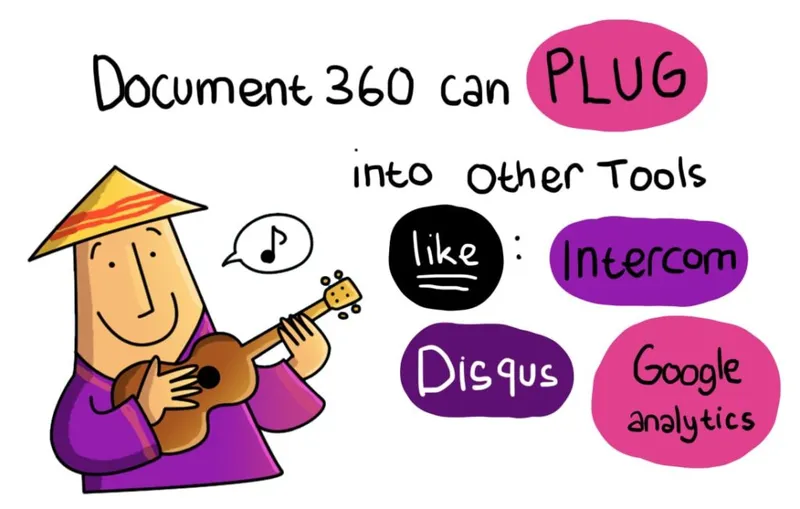

Open Source Help Authoring Tools: The Pros and Cons
Your product needs great customer service. A crucial part of this is providing documentation to help people use it and to troubleshoot. Creating these documents can be time-consuming. So, many companies turn to help authoring tools to streamline the process. Help authoring software helps companies design, publish and maintain their help documentation.
Dominating the market are a few major players: Adobe RoboHelp, Madcap Flare and HelpNDoc. These solutions are proprietary. They come with an up-front or recurring cost. Open source help authoring tools don’t have an obvious price tag. This makes them a tempting proposition for some organisations.
What are open source help authoring tools?
With open source tools, you get a free application and the ability to customise its source code. Sandcastle and MediaWiki are two such examples of open source help authoring tools. Additionally, some proprietary solutions (such as HelpnDoc) offer free versions for personal use. Although this isn’t strictly open source as you cannot alter its source code.
There are many pros and cons of using open source software. The following piece will discuss some of these to help you choose the right kind of tool for your business.
The pros and cons of open source help authoring tools

Deploying:
You can easily download open source software and install it on a local system. This gives you free access to customise its source code. Letting you build a help authoring tool that will better meet your organisation’s needs. Open source is worth considering when you have very complex requirements. For example, you need to integrate it with specific live chat software.
Yet, implementing an open source tool can be time-consuming. It also requires a fair amount of expertise. If you need a plug-and-play solution then proprietary and cloud-based software are more suitable. Similarly, if you don’t have the IT resources or experts in-house then open source isn’t for you.
Costs:
One major temptation to use open source lies in the fact that it’s free to download. However, in some ways, you get what you pay for and open source software requires a lot of work before it’s useable. You will incur costs when implementing and customising it. Especially because it requires expert staff who may be expensive to hire.

Budgets can quickly over-run if you’re not used to customising open source software. Same if you cannot accurately determine (or stick to) a project timeline. In this way, proprietary and cloud-based software provide clearer costs – wrapped up in a monthly, annual or initial fee. Plus, they are generally more user-friendly right from the start.
Compatibility:
Open source tools are often compatible with a limited number of operating systems. To use them on different systems and devices, you’ll need to customise them. This adds to the amount of initial work your team will have to do to get it functional at the start.
One factor that influences your choice will be who uses your help authoring software. If they are in one location and tech-savvy then open source could be suitable. But if they live across the globe and use a lot of different devices, then a proprietary or cloud solution is better. The same applies if they need a lot of technical support.
Because cloud-based tools are deployed via the cloud, they are compatible with a lot more devices and operating systems. With proprietary tools, it all depends on the vendor. However, most, (such as RoboHelp) will run on Windows.
Data back-up:
Cloud-based tools come with data backed up automatically. Meanwhile, proprietary and open source tools will require you to do this yourself. With open source help authoring tools, your IT team will have to create data infrastructure that will secure, manage and back-up any information on the tool. Again, this requires expert knowledge and investment in your data management processes and solutions.
Security:
Open source code is freely available to anyone who downloads it, making it potentially insecure. Your IT team will need to closely monitor the security of your tool to ensure it isn’t hacked and its data lost. Initial work will have to be done to patch up any potential weaknesses. With other solutions, security is the responsibility of the vendor.

Upgrading and updating the tool:
If you expect to regularly upgrade and update your help authoring tool (perhaps in response to a changing operating system or end-user feedback) then open source can be pricey. Cloud-based help authoring software will often update automatically. Meanwhile, proprietary updates can be done for an additional fee.
However, with open source tools, all responsibility for updating and responding to end-user feedback falls on you. Additionally, any upgrades need to consider the previous work done to customise your open source tool. This needs specialist technical knowledge and proper documentation of any changes to the original source code.
Customisations and integrations:
A major perk to using open source help authoring tools is the freedom to completely customise it. It provides the foundations to a help authoring tool, so your team can build in any integrations or features that your business needs. This is useful when your company requires a lot of integrations (with CRM or live chat software, for instance) or complex customisations.
But this can be overkill if you can get by with the features and integrations of cloud and proprietary tools. Plus, features can be limited with open source software. Microsoft’s HTML Help Workshop, for example, will only turn HTML pages into a compiled help (.chm) format. To gain full functionality, you may need to combine several solutions.
User support:
By now, you’ve probably realised that you’re on your own with open source software. There is little-to-no support available, save a few online forums. Sandcastle, for example, has a section where you can report issues or ask questions from the community. Therefore, your IT team (and the users of your help authoring tool) will need enough expertise to be self-sufficient.
Proprietary and cloud tools don’t necessarily come with full support either (although ones like Document360 do!). Usually, the support provided is at the vendor’s discretion, but it’s more than what’s provided with open source. It’s also more user-friendly, with training or documentation aimed towards multiple knowledge levels.
Open source works for some
For some companies, open source is the perfect solution. These are usually organisations with an expert team and who require highly specific features.
It’s true that open source offers the most flexibility when it comes to customisations and integrations. However, it needs a lot more work to get up-and-running compared to proprietary and cloud tools.
Proprietary and cloud tools are more suited to organisations with a specific budget because there are clear costs. For a one-off, annual or monthly fee, you know what features and support are available. Most vendors will offer a free trial so you can understand if their tool suits your organisation.
Whatever you decide on, make sure it’s the best solution for your ongoing business needs, budget and the team working on it. Take your time when choosing a tool, because it underpins the success of your customer service.
Document360 for a cloud-based solution

Considering a cloud-based option? Document360 offers a great solution for creating, managing and publishing help documentation software. Collaboration is built into the tool with multiple version control, article commenting, auto-save, code blocks and Markdown support. It also integrates with major third-party solutions including Intercom, Google Analytics, and Disqus. With three pricing tiers, you can find the version that best suits your business and budget.






